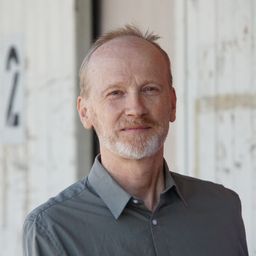Critical inquiry, arts-based methodologies and participatory approaches for sustainable heritage futures of post-industrial contexts III
My Session Status
This session addresses a perpetuating disjunction between conceptualisation of heritage and heritage making in heritage studies vis-a-vis heritage management and conservation of industrial heritage sites. There is an inevitable impact of this disjunction on advancing policy in people- and place-centred approaches to heritage futures. This session aims to explore ways in which tangible and intangible traces of the past can be utilised creatively in shaping desirable places to dwell and work. How can we address re-placing the natural and social legacy in neglected urban settings of industrial heritage sites through assembling informal archives and experimenting with art, while engaging local communities in building more equitable futures?
Over the last decades, we witnessed an accelerated growth of participatory approaches, citizen activism, and arts-based methods that informed ways of problematizing heritage as emergent and dynamic phenomenon produced through multiple discourses, practices, performativity and rituals. Yet, these approaches advance conceptualisation of heritage that is more fluid and context-dependent than definitions produced by architectural and urban practices and the archaeological and scientific methods used in heritage management and conservation. Contributions in this session critically reflect and creatively explore how new methods can be accommodated within and adopted alongside existing praxis of heritage management studies concerning industrial heritage sites:
- How to engage methodologically and conceptually with processes of change concerning neglected sites and industrial ruins through critical and creative practice?
- How different methods can help to improve sustainable access to and conservation of industrial heritage?
- How can we support the citizen’s sustainable engagement in management of heritage of vernacular and post-industrial sites through volunteerism, activism, and socially and/or environmentally engaged artivism?
- How the bottom-up processes, through on-site and online forms of collectivism and relationality might enhance an overall understanding of the challenges facing urban management, placemaking, urban planning, and conservation praxes, concerning industrial heritage, to reduce the effects of major cultural disconnections that threaten urban futures?
Sub Sessions
Urban exploration, urbex, consists of the unauthorized and non-profit visit of abandoned places (hospitals, churches, warehouses, industrial buildings) (Offenstadtla, 2020). This practice includes a series of codes of conduct shared by urban explorers which aims, in particular, to protect the integrity of the places visited and to preserve their relative anonymity. Montreal has a particularly active urbex scene, and icons of the city's architectural heritage are frequently depicted on vari...
All over the world, committed monument conservationists point out cultural heritage sites endangered by decay or mishandling in so-called „Red Lists“. This contribution qualifies this approach positivly as an opportunity to understand neglected sites as unrealised potential, to recognise their specific possibilities and to point out ways to develop the sites accordingly for the benefit of society.In this meaning, industrial heritage sites can co...



Discussion